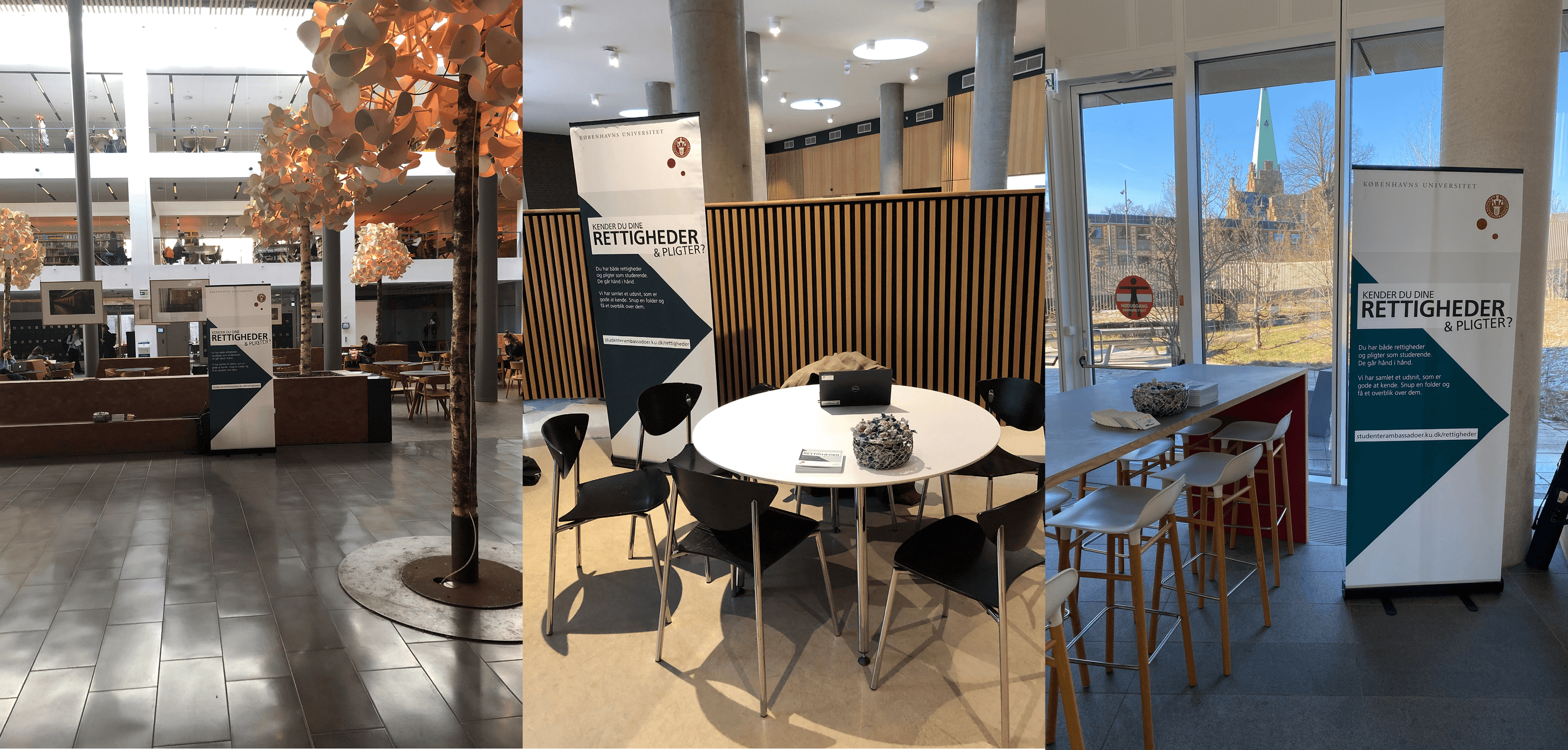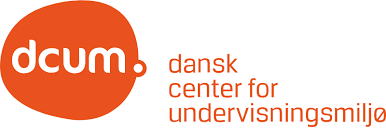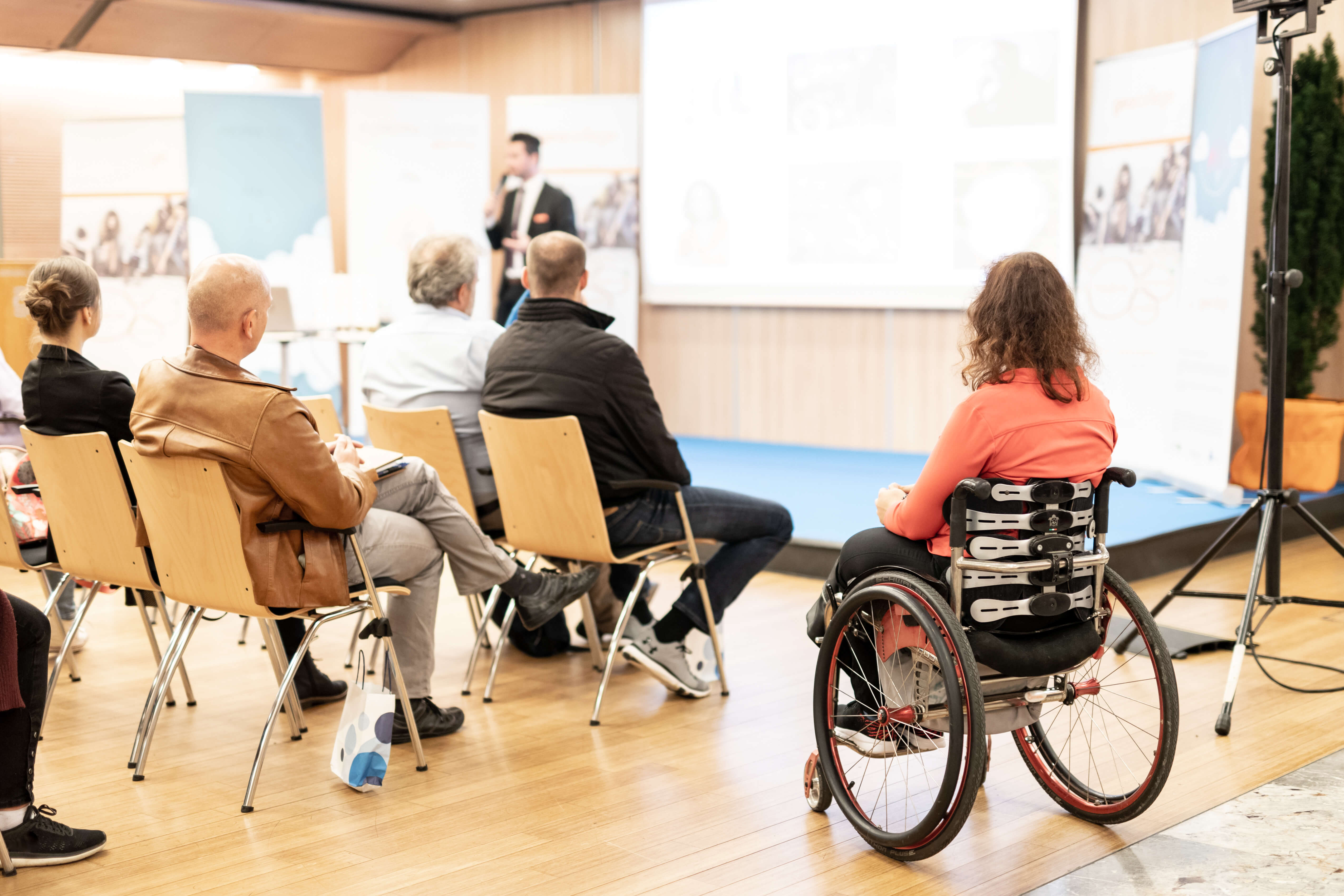The Student Ambassador’s newsletter Q1 2022
The Student Ambassador’s quarterly newsletter keeps you updated on how the Student Ambassador and many others are working to improve students’ legal rights and develop dialogue and understanding between students and the University.
Counselling needs in Q1
In Q1, the Student Ambassador received 205 enquiries.
Almost a third of the enquiries were from students who wanted guidance on how to write a exemption application. Many of these enquiries were from students with functional impairments who had to apply for adjustments in relation to classes, exams or their syllabus, including exemption from activity requirements. There were also quite a few enquiries about exemption in connection with illness, for example applications for extra exam attempts.
Just over 20 percent of the enquiries were from students who wanted guidance on how to write a legal complaint – mostly due to rejected exemption applications.
In addition, around 20 percent of the enquiries were about guidance on exam appeals and from students who are suspected of plagiarism.
Weekly visits to campuses in March and April
In March and April, the Student Ambassador visited some of the campuses. The Student Ambassador talked with students about their rights and duties. You can find details for upcoming visits in this semester in our calendar.
We will visit campuses again in the autumn semester. Keep an eye on our calendar or Facebook page for updates about dates.

Use of latest addition to the rules of procedure
As mentioned in our previous newsletter, Rector added section 8(3) to the rules of procedure of the student ambassador in December.
The addition gives the Student Ambassador the opportunity to discuss a student’s enquiry with relevant managers at UCPH if it appears that the administration does not sufficiently comply with the provisions on guidance, assistance and grounds laid down in the Danish Public Administration Act.
We are now trying to apply the new section 8(3) in relevant cases where students with functional impairments have received a rejection on their application for exemption.
Meetings in February with the faculties’ programme managements and Education and Students
Each year in March, the Student Ambassador's annual report must be sent to the university director, and before that (in February at the latest), the Student Ambassador Bo Gad Køhlert meets with the programme management of each faculty and Education & Students from the Central Administration to discuss enquiries from students received during the year. Representatives from the programme management and student politicians attend the meetings.
In February 2022, discussions included:
- Teaching and guidance of students on how to use their own and shared digital notes to avoid plagiarism and self-plagiarism
- Processing of exemption applications from students with functional impairments
- Positive outcomes of a UCPH course on writing clearer decisions and emails to students
- Grounds for rejection of examination appeals
- Revised Examination Order valid from 1 September 2022.
Presentation for student counsellors at SOC.SCI.
On 22 March, the Student Ambassador Bo Gad Køhlert was invited to give a presentation for the employees at a section meeting in SAMF Education. The employees had many questions regarding enquiries to the student ambassador from students at SOC.SCI., particularly enquiries concerning application for dispensation due to functional impairments and complaints about legal aspects.
New free material from the Danish Centre of Educational Environment to support students with functional impairments
In February, the Danish Centre for Educational Environment published free guides and a digital planning tool for teachers, counsellors and advisers who are in contact with students with physical or mental impairments. Below, you can find an extract from the centre’s description of the new material.
"Minstudieplan.dk is a planning tool for students on higher-education programmes. The platform can provide students with an overview of their degree programme, and they can also learn about support options and various types of functional impairments."
"In the guidance material, you can, for example, learn about 47 types of physical and mental functional impairments and what challenges and needs that may lead to in study-related contexts. In this connection, the guidance material helps you to focus on efforts that support students with functional impairments and to get ideas for further developing such efforts. Therefore, the guidance material also includes recommendations for how to best support students with functional impairments."
In the student ambassador’s office, we think that the guidance material can in many ways be helpful for both students, teachers, supervisors, case workers, study boards, etc. Together with others at the University, we will look into how the material can be put into use in the best possible way.
Read more about the project and find the materials here.

The Agency’s survey of conditions for students with functional impairments
In February, the working group for students with functional impairments under the Danish Agency for Higher Education and Science published the report “Better conditions for students with functional impairments”.
In the report, the working group maps out key challenges that students with functional impairments face in relation to finances and completing their studies. The challenges include:
- Delays on SPS aids
- No solutions for students who need to record classes
- Lack of coherence between the options for extending studies and the study activity requirements for receiving state education grant.
In the report, the working group also identifies areas where students with functional impairments appear to be particularly challenged in relation to their fellow students – especially regarding well-being. Based on that, they have made the following recommendations:
- Early student counselling for future/new students
- Focus on organising study-start programmes that embrace all students
- Flexible options for group work and group exams or other alternatives
- A flexible framework for internships.
Read the report here (In Danish only).

